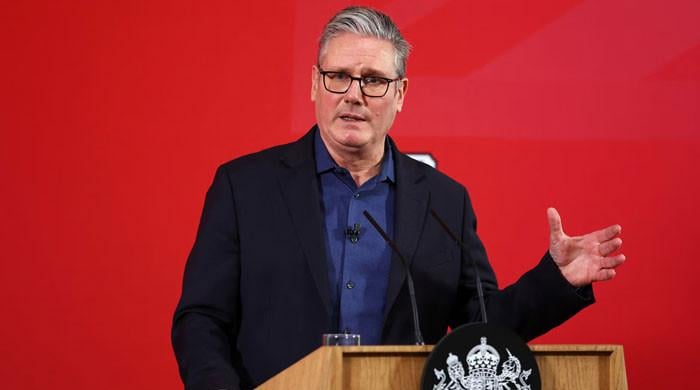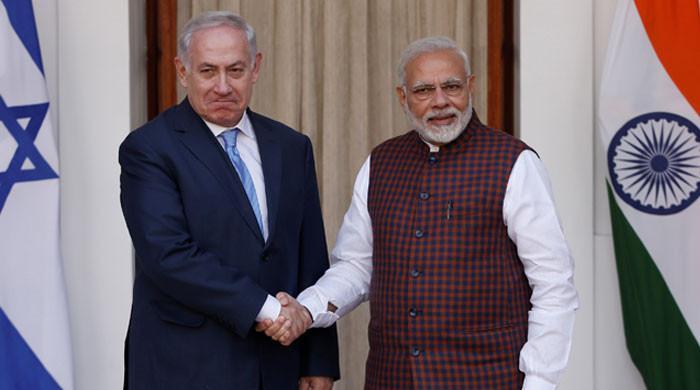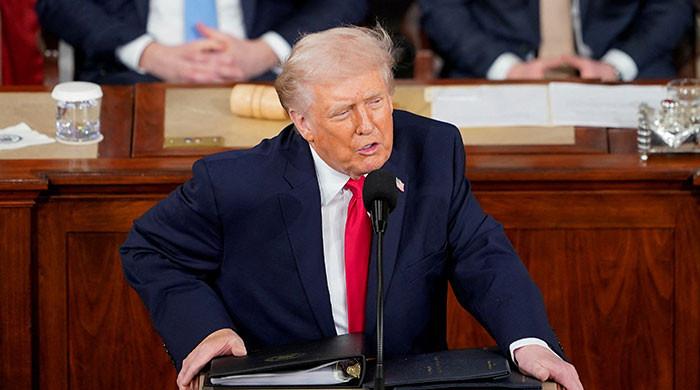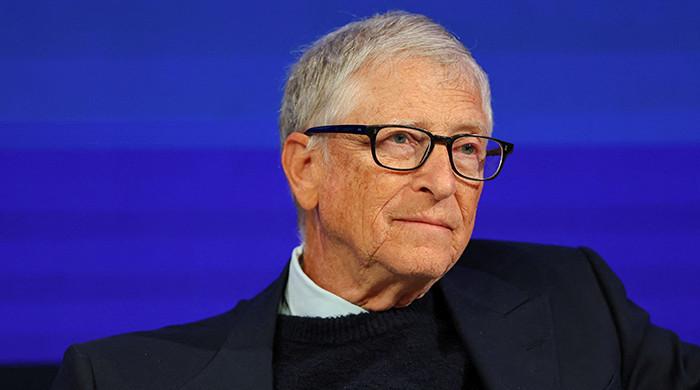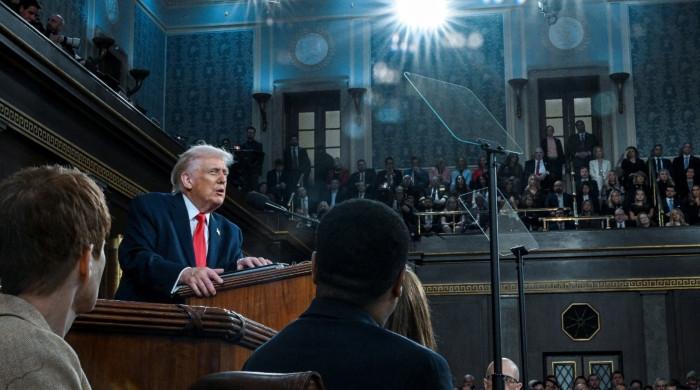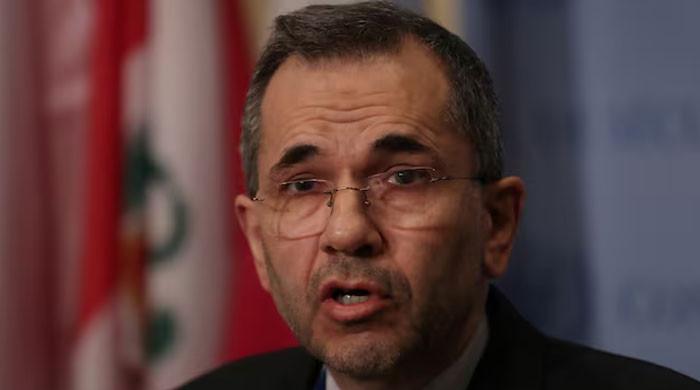Bola Tinubu becomes 16th president of Nigeria, as economic issues loom
Kashim Shettima becomes the vice president of Nigeria replacing Yemi Osinbajo
May 29, 2023
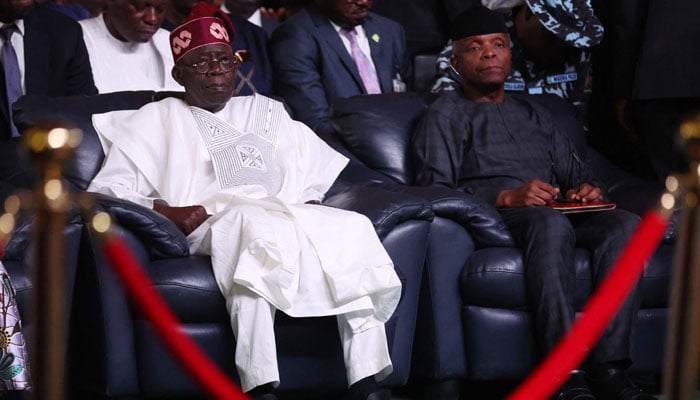
Bola Tinubu becomes the 16th president of Nigeria Monday after succeeding Muhammadu Buhari, a former general who stepped down after serving two terms in office as the country grappled with security and economic issues, AFP reported.
"As president of the Federal Republic of Nigeria, I will discharge my duties and perform my functions honestly to the best of my ability, faithfully and in accordance with the constitution," 71-year-old Tinubu said from the capital Abuja's Eagle Square.
Foreign leaders and representatives were also present at the ceremony including presidents Cyril Ramaphosa of South Africa, Paul Kagame of Rwanda and Nana Akufo-Addo of Ghana as well as delegations from the US, Britain and China.
Kashim Shettima became the vice president of Africa's most populous country replacing Yemi Osinbajo.
The party of the duo was declared winner in February after bagging the highest number of votes — 8 million — and picking up the required number of ballots across two-thirds of Nigeria's states.
However, according to some analysts, Tinubu only garnered just over a third of the total vote, leaving him with a weak mandate.
The International Crisis Group (ICG) said in a note: "The poor showing reflects widespread disenchantment with his party's record... along with misgivings about his personal eligibility for the office."
Regarded as a political godfather, Tinubu campaigned on the slogan "it’s my turn" to govern the country, Africa's biggest economy.
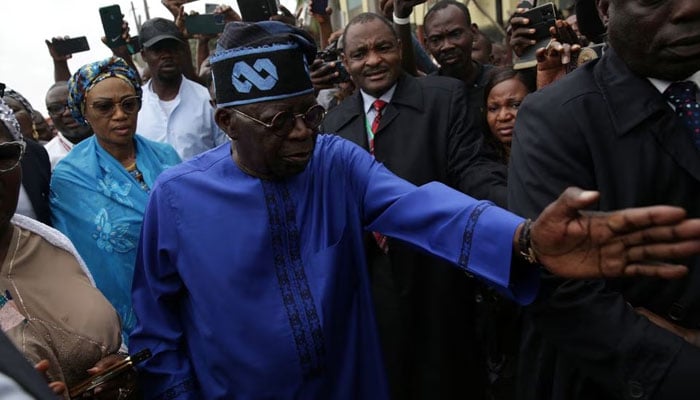
He has touted his experience as Lagos governor from 1999 to 2007 — a period that, supporters say, modernised Lagos, Nigeria’s commercial hub.
Despite the performance, the new president faces corruption accusations, which he denies, and questions over his health.
The elections were contested in the courts by the opposition leaders Atiku Abubakar, who came second, and Peter Obi, who was third claiming fraud.
The electoral commission admitted that there were "glitches" during the vote but rejected the claims that the process was not free and fair.
Nigerians hope
The earlier ruler Buhari had promised to tackle graft and insecurity but he was a disappointment to many.
He passed his successor a mounting debt and burgeoning inflation, as well as deepening concern over attacks and kidnappings by militant groups.
Ebenezer Obadare of the Council on Foreign Relations, a Washington-based think tank, said: "His presidency showed it is possible for an individual believed by many to be personally incorruptible to preside over an administration that is nonetheless defined by corruption and rank incompetence."
"Nigerians will soon find out whether a leader widely seen as corrupt can preside over a relatively malfeasance-free and reasonably competent administration," Obadare wrote in a blog.
Buhari is expected to leave Abuja Monday to spend time at his farm in Daura, in Katsina State, near the border with Niger.
Challenges to Nigeria
The new government has a lot of work to do starting with sustaining the economy.
One of the main challenges for oil-rich Nigeria is that it swaps crude worth billions of dollars for gasoline that it then subsidises for its domestic market.
This has caused a huge drain on revenue and foreign exchange, contributing to ballooning debt.
More than 80 million of the country's estimated 210 million people live below the poverty line, according to the World Bank, and the UN has warned that over a quarter of those are facing acute hunger this year.
Despite thriving tech and entertainment sectors, many middle-class Nigerians are moving abroad hoping for a brighter future.
Another priority for the incoming government will be to address insecurity, which has spread like wildfire in recent years.
Troops are battling gangs of heavily armed criminals and kidnappers in central and northwestern states, oil thieves, pirates and separatists in the southeast, and a 14-year-old jihadist insurgency in the northeast.
Complicating matters, national assembly elections produced greater political plurality this year, with seven parties represented in the incoming senate and eight in the next house of representatives.
"The next administration will need to work overtime to garner consensus on the legislative agenda," said Afolabi Adekaiyaoja in a report for the Abuja-based Centre for Democracy and Development.
Governors, who also wield substantial power in Nigeria, were also sworn in Monday.




